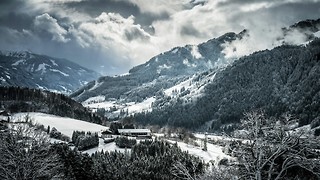Theatre: No Exit
Frances Docx enjoyed this debut performance from the KCDS, but felt it dragged a bit
Hell is other people. Yes, perhaps as you rummage through the electric scraps of your GCSE French literature you recollect that famous pithy saying from your adolescent existential phase? No? Well…
The inaugural play of the newly founded King’s College Drama Society is a one-act performance set in Hell, but not the conventional fire and brimstone, racks and pokers Hades; no, Sartre’s Hell consists of mind games, judgment and accusations. In other words, Sartre’s Hell… is other people.

The play opened with Tweed jacketed Joseph Garcin (Josh Walker) fretting and sweating, wringing his hands and commenting on the furniture as he could only conjecture at the torture he imagined waiting for him. The smug and aloof ‘Valet’ (played by Giles Pengelly) accompanied him, rocking back and forth on his heels occasionally exacerbating Garcin’s frustration with a wry smile. Slowly, we met Inès and Estelle who formed two thirds of the mentally torturous triangle.
Throughout the play we saw three different shades of inner torment and equally, three different qualities and ranges of acting. Josh Walker (who portrayed the male lead ‘Joseph Garcin’) brought a restless paranoia of the most intense sort. While this was impassioned and captured the intensity of the situation, it was invariable and so soon became tiresome. Walker rarely dropped his voice below an uncomfortable bark and could not shake off a staccato delivery.
Olivia Stocker’s stage presence, however, was powerful and captivating. She assumed the complicated and convoluted character of Inès perfectly, who burned passionately and assumed total indifference within the same sneer. Maria Pawlikowska, too, stormed the stage as Estelle Rigault, a toxic concoction of the vulnerable and vicious. Yet it was Stocker’s performance which held me, she buzzed with a sinister sexual tension in her advances towards Estelle- displaying an attraction laced with distaste for the object of her desire.
The sound and lighting were pitched well, the soft flickering music felt as if it seeped in and out of focus when the actors paused for effect which heightened the intensity of the clash between notions of isolation and claustrophobia.
Perhaps my biggest qualm, however, is that the production just felt long, exhaustingly so. Of course, the actual length of Sartre’s text is inescapable but the performance was'not quite engaging enough to sustain the audience for an hour and a half.
 News / British Academy elects 12 Cambridge academics22 July 2025
News / British Academy elects 12 Cambridge academics22 July 2025 News / Lord Smith elected Cambridge chancellor23 July 2025
News / Lord Smith elected Cambridge chancellor23 July 2025 News / Cambridge scholarship recipient trapped in Gaza21 July 2025
News / Cambridge scholarship recipient trapped in Gaza21 July 2025 Comment / Stop disarming people of their nuance23 July 2025
Comment / Stop disarming people of their nuance23 July 2025 News / Chancellorship candidates express concern about conduct of election 19 July 2025
News / Chancellorship candidates express concern about conduct of election 19 July 2025








